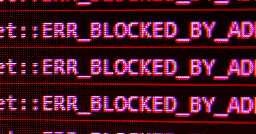Bitwarden Heist - How to Break Into Password Vaults Without Using Passwords
pimterry @ pimterry @lemmy.world Posts 9Comments 8Joined 3 yr. ago
pimterry @ pimterry @lemmy.world
Posts
9
Comments
8
Joined
3 yr. ago
Bitwarden Heist - How to Break Into Password Vaults Without Using Passwords









Hahaha, that might be British-specific I guess? I always assumed it was universal. Just means "a long time".
https://www.merriam-webster.com/dictionary/donkey%27s%20years